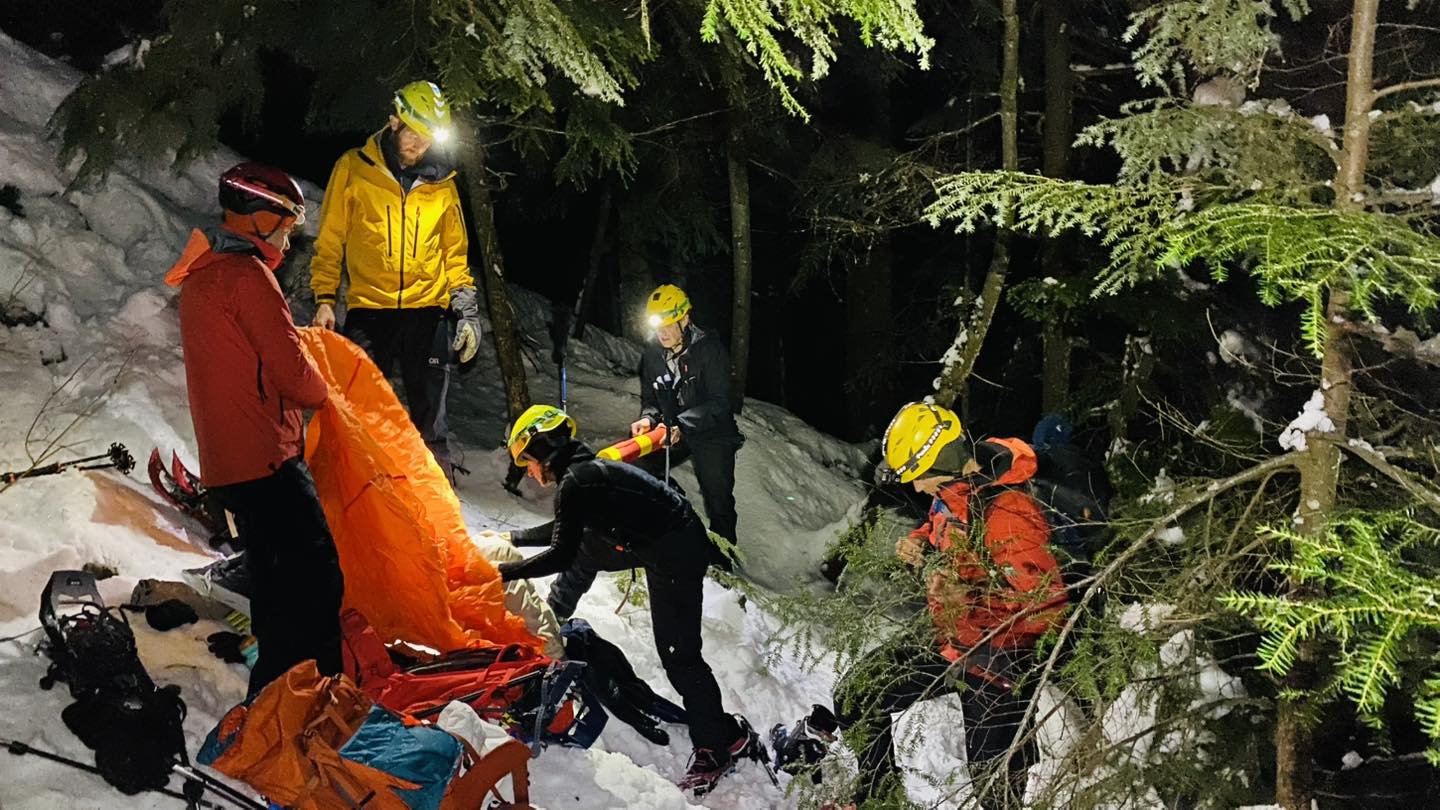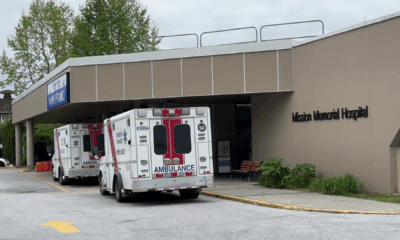Local News
North Shore Rescue recovers out-of-bounds skier on Cypress

North Shore Rescue (NSR) says a skier came close to death before an overnight rescue on Cypress Mountain.
NSR says the skier had gone out of bounds off the ‘Glades’ run at the resort when he realized he was lost and called for help. Before dispatchers were able to determine his location, his phone battery died.
That’s when rescuers got to work.
“Given the circumstances, NSR responded with a full team callout, including members on skis and snowshoes, three thermal drones, and a helicopter rescue crew in Talon helicopters’ Dauphin, with NVIS. Our Avalanche Safety Officer created an Avalanche Operations Plan for us to ensure searcher safety,” said a statement Tuesday.
Finally the the helicopter team spotted some tracks, and ground crews tracked ski prints, then boot prints down a creek drainage until they could hear a voice.
“The subject was soaking wet, very cold, and had virtually no voice left from all his shouting. Crews provided him with warm fluids, dry clothing, and foot traction,” NSR explained.
The skier and crews were picked up by a helicopter and brought back to the Cypress parking lot, where NSR says he was reunited with his family.
NSR says it has no intention to shame the skier, but says the rescue offers a number of “lessons learned.”
First, it says backcountry skiing should only be done by trained, well-equipped athletes — and never done alone.
“While it may seem tempting, essentially all directions out of bounds on our ski hills lead you away from the hill/lifts and into very difficult terrain. Once there, it is all but impossible to bootpack back up the hill,” said NSR.
Secondly, the skier called Cypress dispatch rather than 911, which has more resources to extract the caller’s exact location.
Next, NSR says the skier had only a two per cent charge on their phone battery before calling.
“In cold weather, cell batteries drain much quicker than usual. On the margins of cell network range, cell batteries also drain much quicker than usual (as the phone boosts power to its antenna in an attempt to get service). Combined, cell batteries drain very quickly. This is why we always suggest keeping your cell phones off or on airplane mode until you need them, and carry an external battery pack/cord for charging.”
Finally, NSR says the skier did not stay in place after calling, instead continuing downhill where B.C. mountains typically get steeper and the terrain gets rougher.
“Indeed, the Montizambert drainage where this individual was located has been the scene of a few fatalities over the years, and the emergency helipad used on this call is located at the top of a 200′ vertical drop. If you are lost, your best strategy is to stay put and wait for rescue. Continuing to move only puts you at risk, and exponentially increases the search area that will have to be covered.”
Had the avalanche risk been rated higher, NSR says crews might not have been able to descend to the skier for their own safety.












